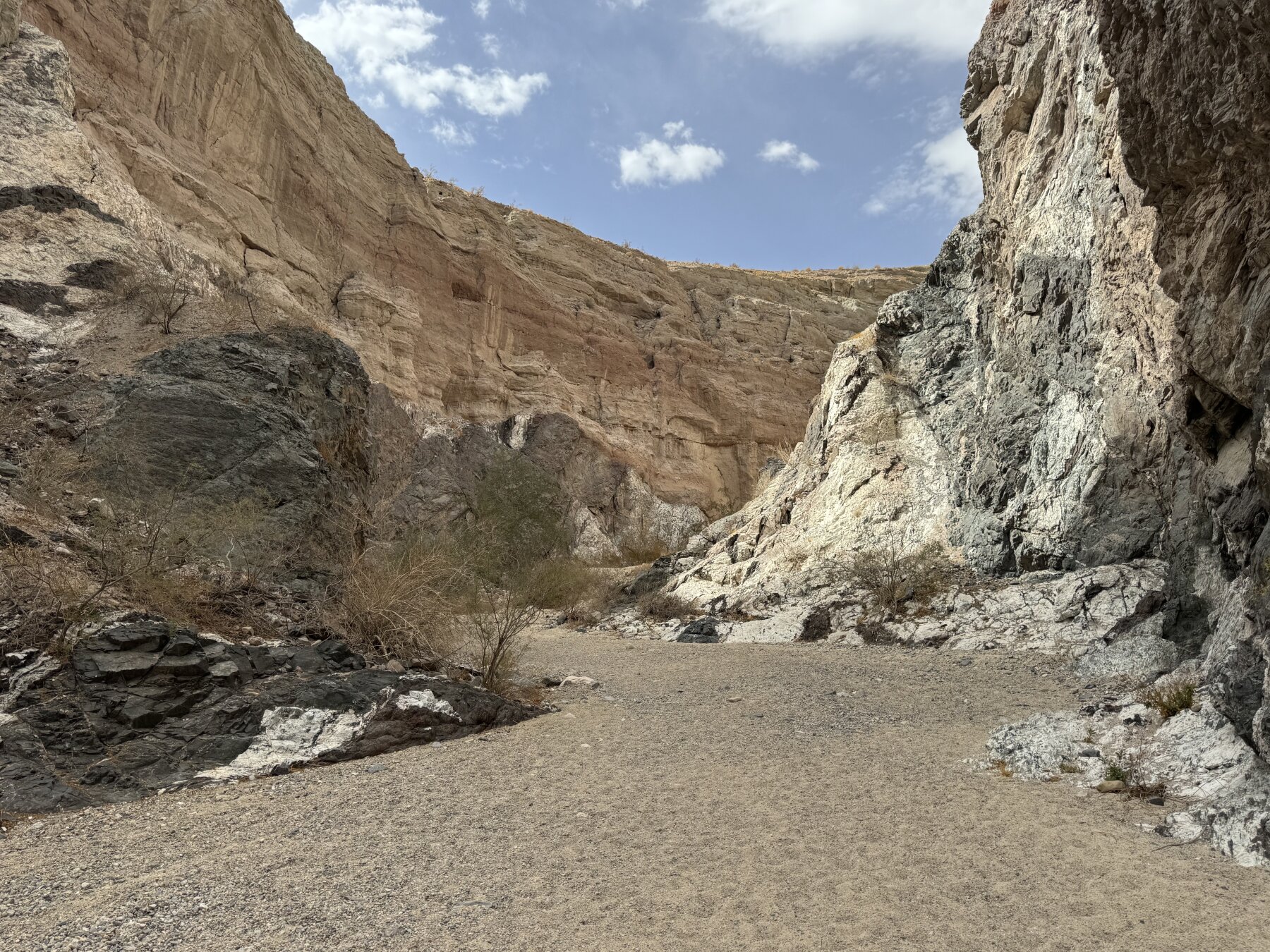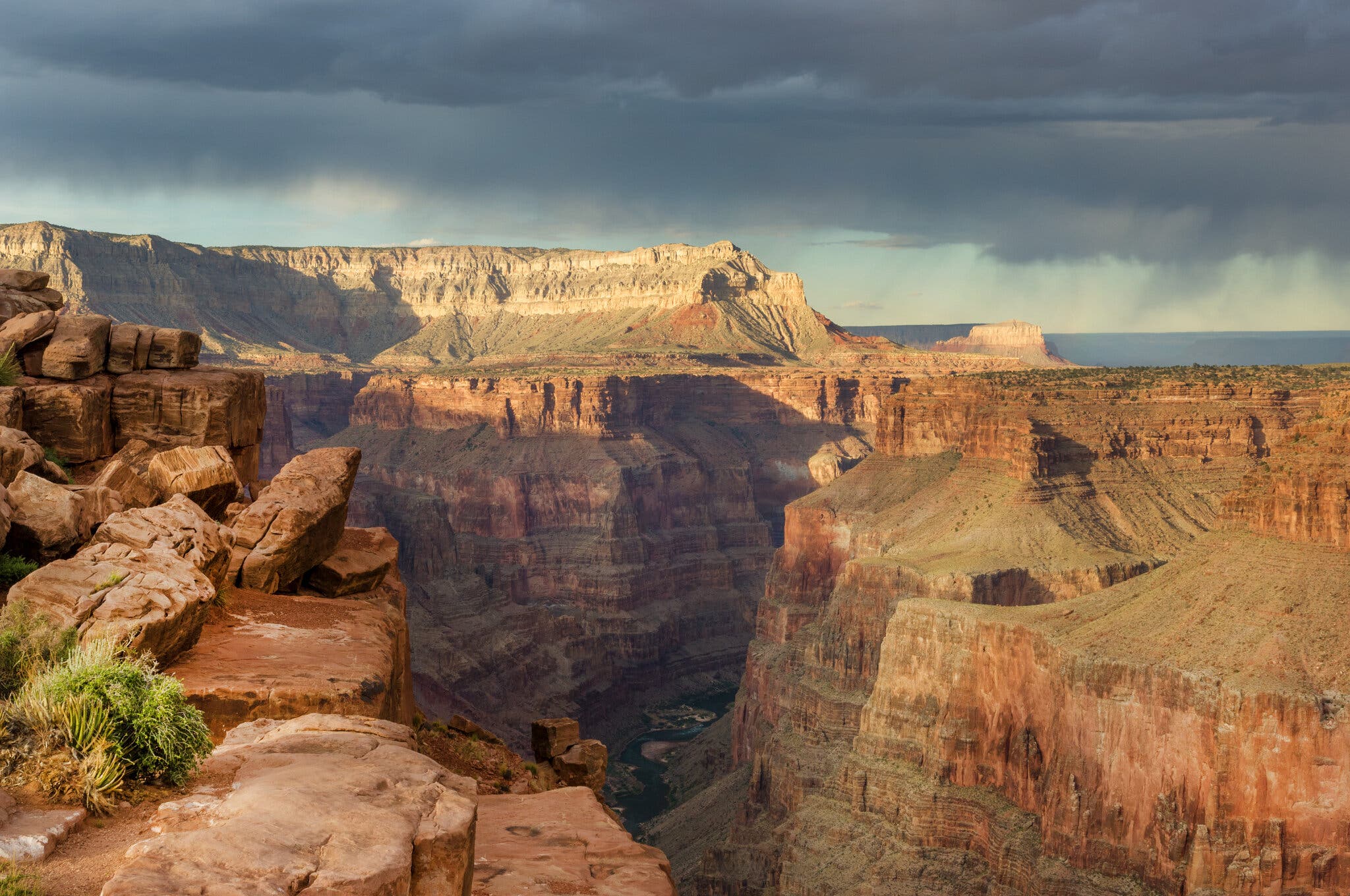|
Vocapedia >
Earth > Geography
> Landscapes > USA
Canyons

Ladder Canyon Trail
is part of Chuckwalla National Monument in Southern
California,
where at least six tribes have ancestral ties to the region.
Photograph: Nate Perez
NPR
Future of the newest national monuments looks murky
after White House communication
March 19, 2025 NPR
https://www.npr.org/2025/03/19/
nx-s1-5316852/future-of-newest-national-monuments-murky-after-white-house-communication

Among the many
remote spots
in Grand
Canyon National Park:
Toroweap Point.
Credit: Getty
In 5 National
Parks, Hidden Gems and Roads Less Traveled
As park
visitation rises, serenity in nature can be elusive.
But even the
most popular U.S. national parks have overlooked treasures
and entrances
that aren’t clogged with traffic.
NYT
July 20, 2022
https://www.nytimes.com/2022/07/20/
travel/national-parks-hidden-gems.html
canyon > USA > Arizona > Grand Canyon National Park
https://www.nytimes.com/2023/06/06/
climate/grand-canyon-colorado-river.html
https://www.nytimes.com/2022/07/20/
travel/national-parks-hidden-gems.html
https://www.npr.org/2019/02/24/
697028570/overcoming-a-long-bitter-relationship-
grand-canyon-and-tribes-mark-centennial
http://www.nytimes.com/2014/08/10/
opinion/sunday/two-development-projects-threaten-the-grand-canyon.html
http://www.npr.org/2014/01/27/
265437261/grand-canyon-may-be-older-and-younger-than-you-think
http://travel.nytimes.com/2009/11/29/travel/29canyon.html
http://travel.nytimes.com/2009/05/31/travel/31hours.html
canyon > USA > Colorado > Grand Canyon's skywalk
UK
http://www.guardian.co.uk/gallery/2007/mar/21/
internationalnews1?picture=329752914
Grand canyon > Colorado river
USA
https://www.nytimes.com/2023/06/06/
climate/grand-canyon-colorado-river.html
Ladder Canyon Trail
USA
part of Chuckwalla National Monument in Southern
California,
where at least six tribes have ancestral ties to the
region.
https://www.npr.org/2025/03/19/
nx-s1-5316852/future-of-newest-national-monuments-murky-
after-white-house-communication
USA > slot canyon UK
http://www.theguardian.com/travel/gallery/2015/apr/16/
buttes-and-beasts-amazing-us-national-parks-in-pictures#img-9
underwater canyon / chasm
USA
https://www.npr.org/2022/06/08/
1103804802/hudson-canyon-
a-giant-underwater-chasm-could-be-the-newest-national-marine-sanct
U.S. portion of the Atlantic Ocean
USA
https://www.npr.org/2022/06/08/
1103804802/hudson-canyon-
a-giant-underwater-chasm-could-be-the-newest-national-marine-sanct
Corpus of news articles
Earth > Geography
Grand Canyon
Still Grand but Older
March 7, 2008
The New York Times
By JOHN NOBLE WILFORD
Coming upon the Grand Canyon long ago, an old prospector is
supposed to have said in amazement, “Something awful happened here.”
The something appears to have started happening 17 million years ago, geologists
concluded in a study in the journal Science on Friday. If correct, this is at
least 11 million years earlier than previous estimates.
By dating mineral deposits inside caves up and down the canyon walls, the
geologists said they determined the water levels over time as erosion carved out
the mile-deep canyon as it is known today. They concluded that the canyon
started from the west, then another formed from the east, and the two broke
through and met as a single majestic rent in the earth some six million years
ago.
Previous theories had posited six million years as the earliest age for the
beginning of the entire Grand Canyon of the Colorado River.
The new research was conducted by geologists at the University of New Mexico,
led by Victor Polyak. The researchers, supported by the National Science
Foundation, used an improved uranium-lead dating technique that yields ages of
minerals back tens to hundreds of million years.
Tests at nine sites established the ages of thick white and yellowish-orange
calcite deposits lining walls of cave interiors as a measure of lowering water
levels as the canyon deepened. The results indicated that the erosion rate was
much slower in the western canyon than in the eastern section, the geologists
reported.
“We were surprised by our results,” Dr. Polyak said in a telephone interview.
“There have been a lot of theories over the last 100 years, and we didn’t expect
the canyon history to go back so far.”
In an accompanying commentary, two British geologists who were not involved in
the research wrote that some scientists had suspected the greater time scale for
the canyon’s formation, but that the new study “demonstrates it firmly for the
first time.”
The geologists, Tim C. Atkinson of University College, London, and Michael
Leeder of the University of East Anglia in Norwich, England, said the “new age
for such a major valley confirms that on geological time scales the relief of
the continents is continually remade by the interplay” of erosion and crustal
uplift.
Carol Hill, a member of the research team from the University of New Mexico,
said small streams had eroded the western and eastern canyons. The single
Colorado River, which John Wesley Powell navigated in his heroic 1869 expedition
through the canyon depths, emerged only after the breakthrough between the
separate chasms. The merger apparently occurred where the river today, coming
from the north, bends to the west, in the area known as the Kaibab Arch.
Grand Canyon Still
Grand but Older,
NYT,
7.3.2008,
https://www.nytimes.com/2008/03/07/
science/07canyon.html
Explore more on these topics
Anglonautes > Vocapedia
landscapes > USA
geography, maps
Earth > geography,
animals, wildlife,
endangered and extinct species,
resources, agriculture / farming,
population, waste, pollution,
global warming, climate change,
weather, extreme weather, disasters,
climate action, activists
democracy, human rights, migration, politics,
society, religion, health, climate >
world > regions, countries
democracy, politics >
world > foreign policy,
United Nations (U.N.), diplomacy
space > Earth
|